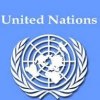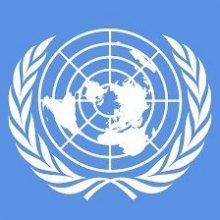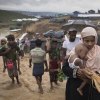
Myanmar: UN rights experts express alarm at adoption of first of four ‘protection of...
Myanmar: UN rights experts express alarm at...
“These bills risk deepening discrimination against minorities and setting back women’s rights in Myanmar,” said the UN Special Rapporteur on the situation of human rights in Myanmar, Yanghee Lee. “At a time when thousands of Rohingya are already fleeing the country by boat, this sends precisely the wrong signal to these communities.”
On Saturday, State media reported that the President of Myanmar had signed the Population Control Healthcare Bill. While the stated objectives of the Bill are to improve living standards, alleviate poverty, ensure quality healthcare and develop maternal and child health, its provisions are extremely vague and lack any protection against discrimination, the independent experts noted. Under the newly adopted law, certain areas can be designated for special health care measures, including birth spacing.
“Any coercive requirement for birth spacing with the aim to ‘organise’ family planning would constitute a disproportionate interference in the sexual and reproductive health and rights of women and could amount to a violation of women’s human rights,” said the UN Special Rapporteur on the right to health, Dainius Pûras, noting that the Bill allows township groups to ‘organise’ married couples to practice 36-month birth spacing between pregnancies. “Women should be able to choose freely and responsibly the number and spacing of their children.”
The experts underlined that inclusive policies and approaches that focus on a voluntary regulation of population can act as effective safeguards to ensure respect for women’s human rights, and sustainable economic and social development. Such policies should provide women with access to health services, including family planning and free contraception; nutrition; education, including sex education; and employment.
“Evidence shows that attempts to impose strategies aimed at ‘controlling population growth’ often disproportionately target marginalized and minority groups and can have discriminatory, coercive and punitive effects that go against basic rights and freedoms, particularly those of women,” the experts added.
The rights experts also expressed serious concern about the other three bills currently being considered by Parliament: the Religious Conversion Bill, the Myanmar Buddhist Women’s Special Marriage Bill and the Monogamy Bill.
The Special Rapporteur on minority issues, Rita Izsák, cautioned that “these bills particularly discriminate against ethnic and religious minorities and have the potential to fuel existing tensions in the country.”
The Religious Conversion Bill establishes a State-regulated system for religious conversion, involving justification, registration, interview, study and approval. “The right to conversion has the status of unconditional protection under international human rights law,” the Special Rapporteur on freedom of religion or belief, Heiner Bielefeldt, said. “States must respect everyone’s right to conversion as an essential component within freedom of religion or belief by removing administrative obstacles.”
The Myanmar Buddhist Women’s Special Marriage Bill seeks to protect Buddhist women marrying non-Buddhist men. “The Bill discriminates against women by restricting the right to marry for Buddhist women and placing restrictions only on Buddhist women who wish to marry outside their faith,” said Emna Aouij, who currently heads the Working Group on discrimination against women.
In practice, the Bill discourages interfaith marriages between Buddhist women and men of other faiths by imposing disproportionate penalties on non-Buddhist men. Moreover, under the Bill, a cohabiting couple where the female partner is Buddhist and the male is not, is de facto deemed ‘married’. If one or both parties do not wish to marry, they may be forced into marriage by a Court, which interferes greatly with the right to enter into marriage only with free and full consent.
The Monogamy Bill criminalizes polygamy and prohibits extramarital affairs. The Bill is redundant since the Penal Code already prohibits polygamy. While the ban on polygamy is in accordance with international human rights requirements, the Bill adopts a restrictive and discriminatory approach to regulate marriage. It makes specific references to ‘non-Buddhist persons’ and omits other forms of marriage discriminatory to women, including early and forced marriages.
“Enforcement of laws criminalizing adultery often leads to discrimination and violence against women. Experience shows that, in practice, adultery legislation imposes disproportional criminal liability on women,” Ms. Aouij added.
The independent experts called on the Government of Myanmar to discard all four laws, which will violate Myanmar’s obligations under international human rights standards. The experts reiterated their availability to provide assistance and technical advice on legislation and other measures affecting basic rights and freedoms in Myanmar.
“In this election year, Myanmar must ensure that its laws comply with fundamental human rights provisions and help rather than hinder progress towards a more tolerant, pluralistic and inclusive society,” the Special Rapporteur on Myanmar concluded.
The UN human rights experts are part of what is known as the Special Procedures of the Human Rights Council. Special Procedures, the largest body of independent experts in the UN Human Rights, is the general name of the independent fact-finding and monitoring mechanisms of the Human Rights Council that address either specific country situations or thematic issues in all parts of the world. Special Procedures’ experts work on a voluntary basis; they are not UN staff and do not receive a salary for their work.
 Reload
Reload



